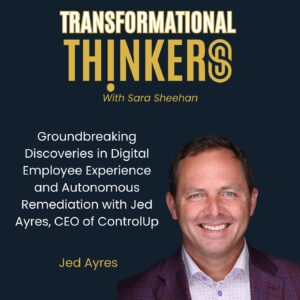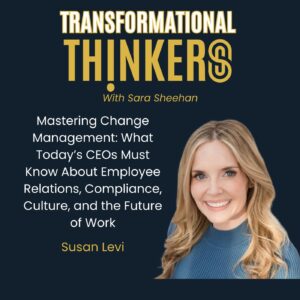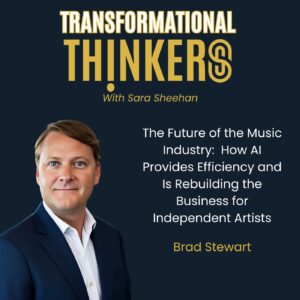Sara Sheehan talks about self awareness and how vital it is to developing your leadership effectiveness. She details several foundational aspects of self awareness including active listening, gratitude, and consistent life habits. Sara confirms that mindset, which is part of self awareness, is one of the most powerful tools a leader can possess.
Active listening, one of the first foundations of self awareness, is the act of being fully present in conversations. Both engaging with others and identifying areas for improvement within yourself simultaneously. Sara explains the SCARF model, a tool for working on active listening, to guide your efforts.
In this episode, Sara Sheehan addresses gratitude and meditation as well as developing consistent life habits for yourself. Gratitude and meditation both contribute towards a positive mindset and personal resilience, according to Sara, and she breaks down how they’ve helped her. She also offers the habits that she’s worked on to better herself and explains how to engrain habits in your brain. Listen to what Sara shares and don’t hesitate to reach out to her if you’d like to learn more.
Resources discussed in this episode:
- BRAINZ magazine
- “SCARF: a brain-based model for collaborating with and influencing others” by David Rock, first published in the NeuroLeadership Journal, Issue One, 2008
- Headspace
- Insights Timer
- Calm
—
Contact Sara Sheehan | Sara Sheehan Consulting:
Hosted by Simplecast, an AdsWizz company. See pcm.adswizz.com for information about our collection and use of personal data for advertising.


